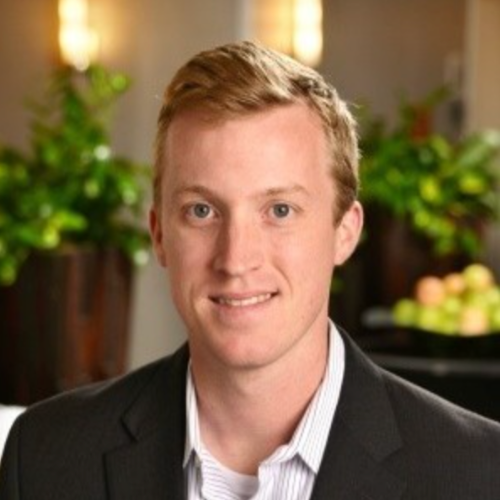Within the last 15 years, Matthew Maughan completed his undergraduate degree and MBA, three years of service in the United States Marine Corps, and several years of analytical and consulting work. Among the many passions and interests he gained during that time, economics and health care became the most prominent. As a Weill Cornell Medicine MS in Health Policy and Economics graduate, he continues to work toward his goal of positively affecting the health care system.
Matthew received his BA in economics from Fordham University and MBA from the University of Michigan. After graduating, he worked as a consultant for multiple pharmaceutical companies, where he became increasingly aware of the problems facing providers and payers, as well as market failures occurring in the health care industry.
“Drug pricing doesn’t make a lot of sense, especially with the value patients get,” he explained. “For example, there are drugs that are essentially therapeutically equivalent, but physicians have perverse incentives to prescribe the more costly one. In some cases, a drug has marginal therapeutic benefit over another but will be priced twice as high. This likely indicates a market that is not well-structured.”
Matthew realized that incentives are as much a policy issue as a business issue. While his MBA prepared him to approach the business of health care, he wanted a skill set that would help him tackle the problems caused by policy. The program at WCM seemed like a perfect fit for advancing his knowledge and preparing him for a career shift that would prioritize systemic reform. It also allowed him to be a part-time student while working full-time in forecasting and analytics at Regeneron Pharmaceuticals.
One of the highlights of Matthew’s first year was the Introduction to US Healthcare Policy & Delivery course taught by Dr. Hye-Young Jung, associate professor of population health sciences. “Dr. Jung designed the class as a survey of the entire health care industry where different guest professors in and outside of Weill Cornell would lecture on their areas of expertise,” he explained. “They each had insight on a different part of the health care system, whether Medicare, Medicaid, or payer incentives. Collectively, they provided a bird’s eye view of how different pieces of the market interact."
He also enjoyed the series of econometrics courses offered throughout the program, taught by Dr. Angelica Meinhofer, assistant professor of population health sciences, and Dr. Amelia Bond, assistant professor of population health sciences. Though his background is in economics, the courses provided a thorough understanding of concepts like causal inference, which he feels more capable of using in future work.
The projects he completed were also meaningful. Working with Dr. Sean Murphy, professor of population health sciences, and Dr. Ali Jalali, assistant professor of population health sciences, Matthew completed a research project on the cost-effectiveness of an Ebola therapeutic in sub-Saharan Africa. With the mentorship of Dr. Jung and Dr. Jiani Yu, assistant professor of population health sciences, he authored a paper on consolidation in nursing homes.
“The program gave me an overarching look at health care, but more importantly, it taught me how to do research,” he said. “The projects allowed me to fully understand how the process works and to identify valuable sources when conducting research.”
He was also able to select topics important to him when designing his projects, which led him to contribute in new ways at his job and strengthen his understanding of issues he hopes to work on in the future. Certain projects were especially significant in his interviews at Brown University, where he will begin his PhD in health services research in the fall.
“[In the future] I see myself either in government or in an advisory position,” he shared. “The US has a lot of decisions to make in the coming years, especially regarding Medicare. I feel a sense of urgency to contribute to putting these programs on more stable footing, without hurting outcomes.”
In having a non-traditional journey toward the program, he advises incoming students to be thoughtful about their goals. “A lot of students worry about fulfilling all their requirements in an academic sense, but it’s important to keep in mind what you want to do when those requirements are fulfilled. Relationships with professors, students, and other affiliated experts are invaluable. If there’s time to explore, it’s now.”


